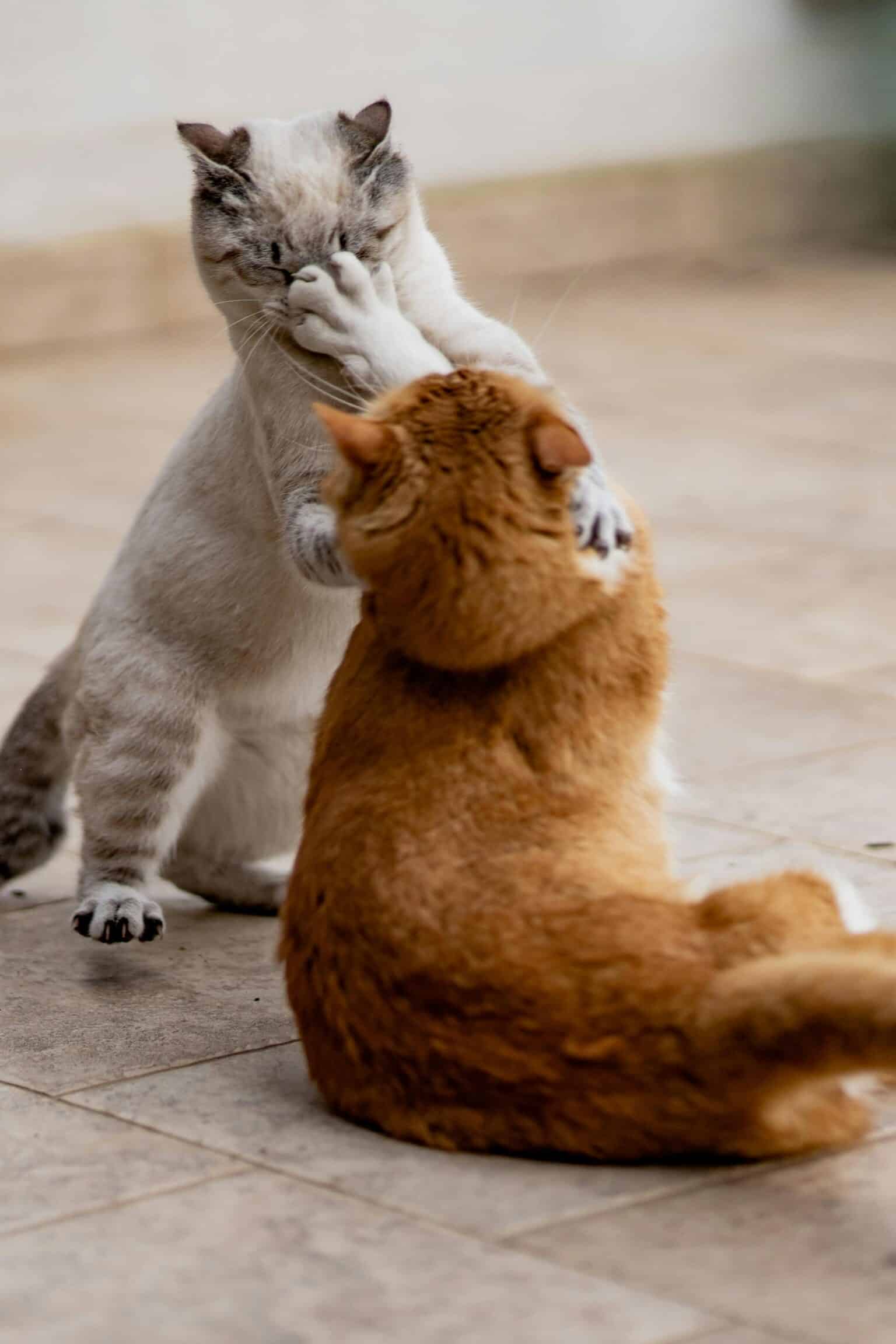Why can cats become aggressive?
Like all living creatures, cats have their own instincts and behaviors, which can sometimes seem aggressive to us humans. Aggressive behavior doesn’t necessarily mean your cat is mean or has a problem. It’s often simply a reaction to something in his environment or to an internal stimulus. To understand the reasons, we first need to identify this state of aggression.
Indicators of an aggressive cat
Having an aggressive cat in your home isn’t just about watching a cat attack. In fact, a number of signals can indicate that your cat is stressed or in defense mode. Some of these indicators include hostile body language, loud and intense meowing or growling, more sustained territory marking than normal, or behaviors that look more like hunting than play. These behaviors are often a manifestation of the cat’s feelings. This can vary depending on the cat’s environment, the people it interacts with and its general health. Identifying these behaviors is the crucial first step in resolving a conflict with your cat.
Causes of aggression in cats
Several factors can trigger aggressive behavior in cats. Stress is one of the most common causes of aggression in cats. For example, a change in the cat’s living environment (moving house, arrival of a new pet, etc.) can cause stress and lead your cat to become aggressive. Similarly, a health problem can also be the cause of aggressive behavior. In other cases, it may be due to socialization problems or a lack of physical or mental stimulation. Our detailed article on stress in cats offers a comprehensive look at the subject. Understanding these factors is crucial to responding appropriately and effectively.
What to do when faced with an aggressive cat: Our advice
When faced with an aggressive cat, it’s important to adopt behavior that won’t aggravate the situation. Here are a few tips to help you manage the situation.
Do’s and don’ts during an attack
When a cat attacks, it’s important to remain calm and adopt the right behavior so as not to aggravate the situation. Avoid shouting or making sudden gestures, which can frighten or stress your cat even more. Never try to physically reprimand your cat, as this will only reinforce its aggression. Instead, try to divert his attention with another object or a treat. If you are injured, clean the wound immediately and consult a health professional if necessary.
How to calm an attacking cat
Calming an aggressive cat takes time and patience. Proven techniques include using soothing cat pheromones, creating a calm, soothing environment, and reducing sources of stress for your cat (loud noises, presence of other animals, etc.). Our article on the benefits of catnip might give you some ideas for soothing your feline. Adopting a stable routine can also help your cat feel more secure and less stressed.
Preventing cat attacks: Preventive strategies
To minimize the risk of your cat being attacked, there are several preventive strategies you can adopt.
The importance of socialization for cats
Socializing your cat from an early age is a crucial step in preventing aggression in adulthood. It can help your cat feel safer and interact better with other animals and people. By exposing your cat to new people, situations and smells from an early age, you’ll help build his self-confidence and reduce potential aggression.
Activities to do with your cat to avoid aggression
Providing your cat with adequate physical and mental stimulation can also help reduce aggression. Involve him in games, training activities, and offer him toys so he can use his energy and intellect. Active cats are often happy cats, and a happy cat is much less likely to become aggressive. For more details and activity ideas, take a look at our article on how to exercise your cat.
Taking a positive approach to an attacking cat
It’s essential to adopt a benevolent and understanding approach to your cat, even if it adopts aggressive behavior. Every cat is different and has specific needs. By understanding and responding positively to your cat’s aggression, you can help preserve your relationship with him and ensure a serene and happy future together. If, despite all this advice, your cat’s aggressive behavior persists, it’s advisable to contact a cat behavior professional. They’ll be able to help you understand what’s triggering your cat’s aggression and give you personalized advice on how to solve the problem.





